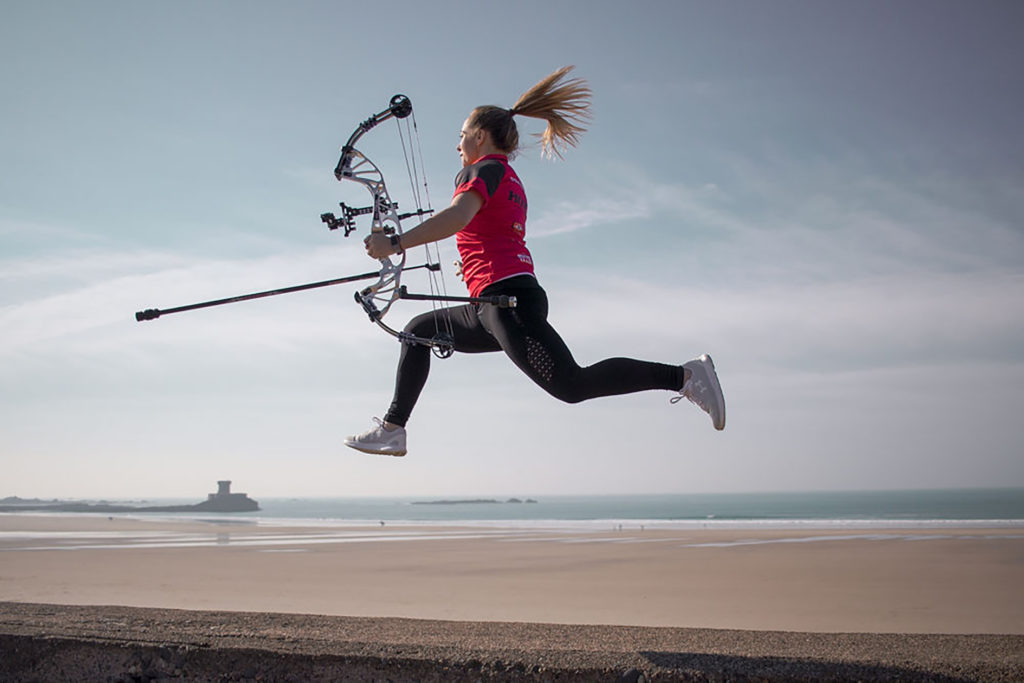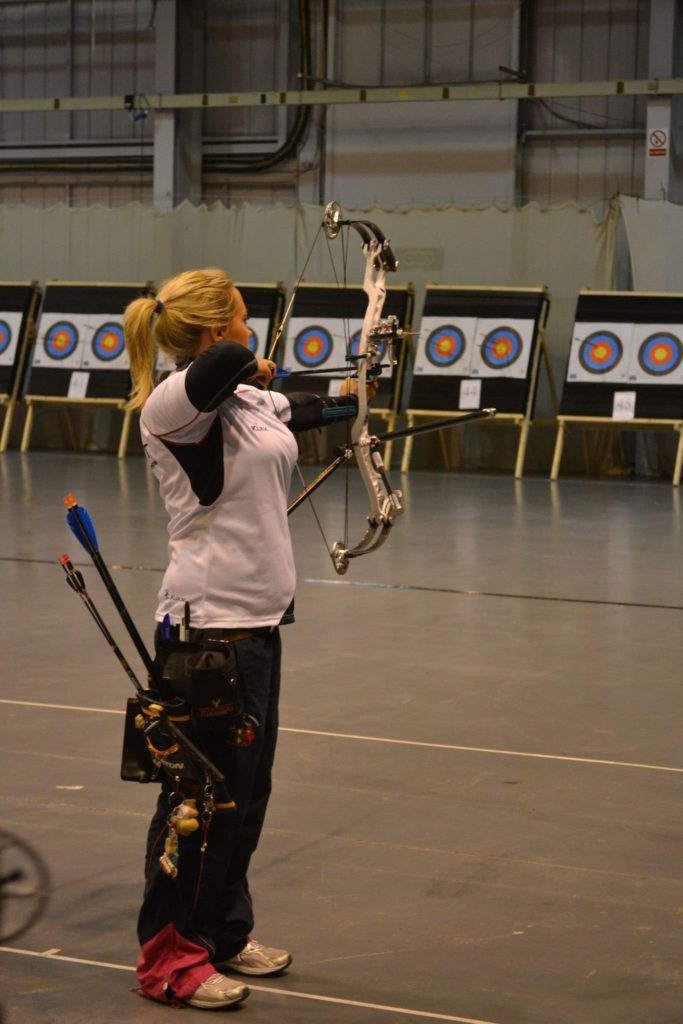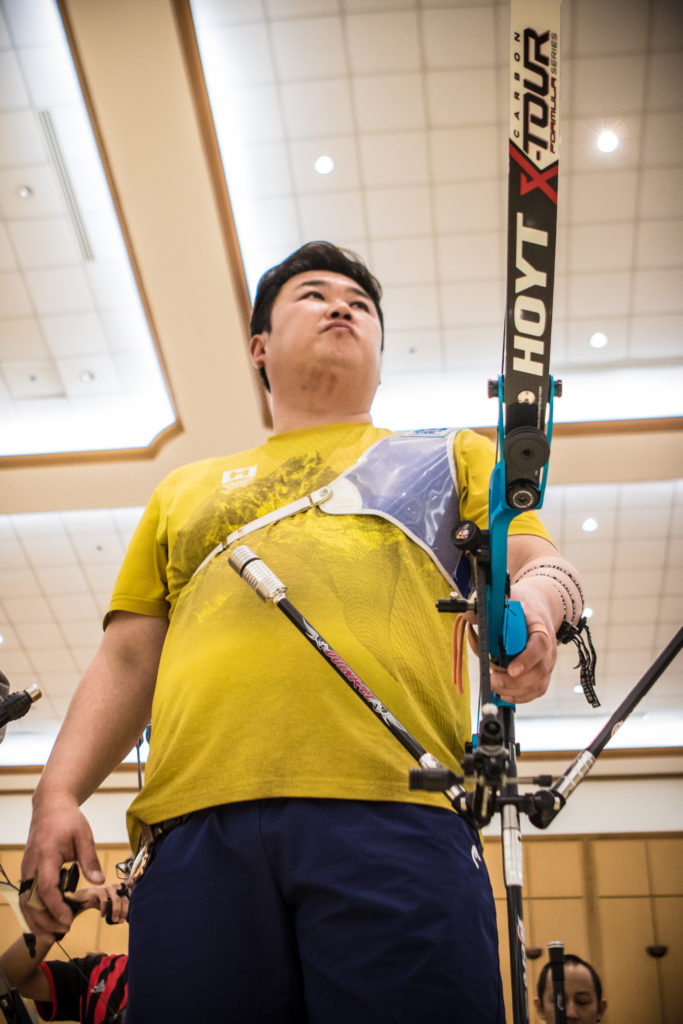By Lucy O’Sullivan

Last month Bow received a question for the Ask The Experts section which said this: “We are often told that overall fitness is crucial to archery, yet I have to say I look at a lot of elite archers and they are obviously not athletically very fit. Which is it?” We decided to let Lucy O’Sullivan, archer and fitness trainer, answer it more fully.
This is an age old question for archers, we are constantly told that we should be ‘fit’, and yet many get results at all kinds of apparent sizes. So what should we do?
I don’t think it is ever fair to say that someone is fit and someone else isn’t fit – as a personal trainer I coach so many different kinds of “fitness”. I have people who are swim fit; run fit; archery fit; people who are body weight strong; and some who are heavy-lifters strong. It can be very difficult to determine what you mean by “fit”.
To be fit is based on being fit for ones own environment, in the way a fish is fit for the water, and a bird is fit for the sky. So someone fit for football, will be different from someone who is fit for sumo wrestling.
However for someone to be ‘athletically fit’ there is the general consensus that they have a lower fat to weight ratio, and are able to perform basic athletic skills with ease.
As someone who has been through many body compositions (body shapes), let me explain my personal perception on this relating to archery performance.
When I was a teenager, obviously body shape is a huge deal for teenage girls, couple that with a particular national coach who made us all feel like we were ‘fat’, I lost a lot of weight. Yes I looked skinny and healthy, but I was NOT fit or strong, let alone archery fit, and my performance suffered!
On the flip side, at university I was very, very strong, and my archery performance was okay, however I was very unhealthy. Adding the university drinking lifestyle to a grievance I had at that time; I ate and drank a lot of the wrong things and piled on the pounds.
I believe that your physical outside is often reflective of your psychological state. For example if people are not particularly happy in themselves, they don’t look after themselves as much; they may not be as well groomed; or wash themselves as regularly; or they may comfort eat more, or exercise less. For me it was the latter two.

Now my archery performance wasn’t terrible, nor was it amazing, but my state of health and mind was definitely not in the right place. (If you want to check if you are okay have a read up on Maslow’s Hierarchy of Needs).
Let’s look at the present. I make it my mission to stay fit and healthy, and help others do the same. Having being on both ends of the spectrum, I believe that being fit is more a mindset then anything else.
Why would you want to be too big or too small, if both extremes are going to cause health implications? People who are anorexic for example, tend to get joint problems; bone problems; and can’t heal as fast, not the best thing to help an archery performance.
And on the flip side people who are obese not only struggle with movement in general, but they are more likely to suffer from diabetes; high blood pressure; and all sorts of other nasty illnesses. Now of course those are both extremes, but why put your body through that?
Some people have argued that more bodyweight means that an archer will be more stable in the wind, and several Olympic champions and top-level compounders have been on the heavier side. Regardless of muscle or fat mass, all elite archers, especially recurves, are immensely strong – often a lot stronger than they look.
All those at the top level will be working with weights to build strength and stamina, whatever size they are. However, you don’t usually see a lot of large bodybuilder-type muscle mass on elite archers – they’re usually going after different goals.

I personally found that when I trimmed down, yes I lost some of that general “fat strength” which can be ideal in stabilising the wind, but the psychological implications knowing that I was looking after my body for the future, being able to perform every day tasks with ease, and then of course being complimented, boosted my self-esteem more so than the points gained by being bigger, and therefore being fitter added to my archery performance! At some point, if you don’t work on your overall fitness your archery results will start to plateau – guaranteed.
Of course, if you get two untrained people of the same height and build, the bigger person will be generally stronger than the thinner person physiologically. Great for performance, however it will cost them more energy to move around and causes more weight bearing strain on the joints, which is not going to help in the long term.
So it is better to be a generally healthy build, to look after yourself. If you do find you are still struggling in the wind, you can use a rucksack filled with heavy items on your back while shooting, or even better, plain and simple get strong in the gym.
Now there will always be times in the year when we archers struggle. As an elite athlete being on tour means that habit and routine goes out of the window, and there’s a lot of tempting junk food about. So it is usual for people to put on a few pounds (myself included). You can either try really hard to prepare yourself to be healthy while you are away.
For example, taking healthy snack options to shoots with you, like fruit and nut mix. Of course, your body needs to be used to this healthier food at home first! Or you could just be less strict on yourself while you’re away, and know that you have to work extra hard before and/or after you go away, in the gym and on diet.
You could even wait until your off season to really get back to a good state of health and fitness, performing everyday tasks with ease, take it easier on yourself in season but knowing that come the off-season you need to be firmly back on it.
Of course it is always difficult to achieve the athletic body, especially in season, but I believe that if you look after your body, it will look after you in the long term, help you with mental performance such as confidence, and keep you from nasty illnesses, too.
Remember it is at least as much about the food you eat as the miles you run, so try to make sensible food choices every day – and on days when you’re not eating the best foods, do try and add in extra exercise. ■
Main pic by Lucian Petrean.
Instagram: @osullivan_archery or @lospersonaltrainer

